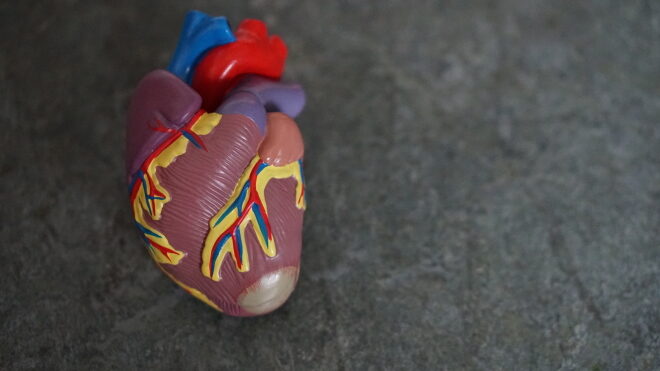
Health x Wellness
Understanding Heart Failure in Singapore
Heart disease is the leading cause of death globally with more than 17.9 million deaths each year. In Singapore, 4.5 per cent of Singaporeans live with heart failure as compared to 1-2 per cent in the United States and Europe.
In fact, the age-adjusted HF hospital admission rate in Singapore rose by approximately 40 per cent in the last decade, making the condition the most common cardiac-cause of hospitalisation. The 5-year survival rate in patients with HF is only at 32 per cent in Singapore.

Heart failure puts a significant strain on the body and patients are more vulnerable to infections and viruses. Patients suffering from more severe conditions might also face difficulties in continuing work, impacting their livelihood and financial security.
The Active Age discusses HF with Prof. Dr. Jörg Kreuzer, MD, Medical Head, Boehringer Ingelheim (South East Asia & South Korea) and Associate Professor David Sim, Senior Consultant, Department of Cardiology, Director of Heart Failure Programme, National Heart Centre Singapore.
the Active Age (AA): What is heart failure?
Prof. Dr. Jörg Kreuzer (JK): Heart failure (HF) is a condition in which the heart cannot pump enough blood to meet the body’s needs. In some cases, it is because the heart is too stiff and cannot fill with enough blood. In others, the heart cannot pump the blood to the body with enough force. Some people have both problems.
HFcan be caused by various conditions that damage or overwork the heart muscle. HF be classified into two types:
- HF with reduced ejection fraction (HFrEF)*: The left heart chamber does not contract effectively, and less blood is pumped out to the body compared to a normally functioning heart.
- HF with preserved ejection fraction (HFpEF): The heart muscle contracts normally, but is not able to relax and allow blood to enter the heart and properly fill it.
*Note: The EMPEROR-Reduced clinical trial investigated the safety and efficacy of empagliflozin in patients with chronic heart failure with reduced ejection fraction (HFrEF).
AA: What are some of the early signs and symptoms of HF?
Associate Professor David Sim (DS): Heart failure is a chronic condition that worsens over time , and symptoms can easily be mistaken for a milder condition.
Heart failure symptoms include:
- Shortness of breath (dyspnea) when you exert yourself or when you lie down
- Persistent cough or wheezing with white or pink blood-tinged phlegm
- Swelling (edema) in your legs, ankles and feet
- Tiredness, fatigue and weakness
- Lack of appetite and nausea
- Confusion, impaired thinking, memory loss and feelings of disorientation
- Increased heart rate and palpitations which may feel like the heart is racing or throbbing
Anyone experiencing more than one of the many symptoms of HF that are progressively worsening should visit a healthcare professional and ask for an evaluation of the heart.
AA: Can you share the top 2 – 3 myths or misconceptions of HF?
DS: When it comes to heart failure, these are some of the most common myths and misconceptions we often hear about:
Heart failure is the same as a heart attack
- Heart failure is a condition in which the heart cannot pump enough blood to meet the body’s needs. In some cases, the heart can’t fill with enough blood. In other cases, the heart can’t pump blood to the rest of the body with enough force. Some people have both problems.
- Heart failure can also be caused by conditions such as diabetes mellitus, high blood pressure, cardiomyopathy and heart attack that damage or overwork the heart muscle.
- A heart attack, also known as myocardial infarction, happens when blocked arteries prevent oxygen-rich blood from reaching a section of the heart. If blood flow isn’t restored quickly, the section of heart muscle begins to die. Heart attack is just one of the many causes of heart failure.
- It is not necessary to have heart attack before developing heart failure.
Heart failure means the heart stops beating.
- The heart suddenly stops beating during cardiac arrest, not heart failure.
- With heart failure, the heart keeps working but it doesn’t pump blood as well as it should. In this case, the heart is failing to supply the body with enough blood and oxygen.
- It can cause shortness of breath, swelling in the feet and ankles or persistent coughing and wheezing.
Only seniors get heart failure.
- Although heart failure is much more common among older people, young and middle-aged people can develop heart failure too. Around 4 per cent (1 in 25) of people with heart failure are under 55.
AA: Why do you think Southeast Asians and Singaporeans have a higher incidence of HF, that occurs at a younger age?
JK: There is a strikingly high prevalence of risk factors for heart failure in Southeast Asia, particularly high blood pressure (>24 per cent in Cambodia and Laos vs. 13-15 per cent in UK and USA), tobacco smoking (>36 per cent in Indonesia), physical inactivity (>50 per cent in Malaysia) and raised blood sugar (10-11 per cent in Brunei, Malaysia, Singapore and Thailand), in spite of a low prevalence of overweight/obesity (21–26 per cent in Southeast Asia vs. 67–70 per cent in UK and USA).
Southeast Asian patients develop HF at a much younger age (54 years) compared with USA patients (75 years) and often have a more severe outcome.
AA: Can this be linked to genetics?
DS: There are some research evidence pointing towards genetics having a role to play in the development of heart failure. In a small, but probably underestimated proportion, heart failure is caused by inherited forms of myocardial disease. While there are many forms of heart failure conditions – some acquired and others inherited, more research in is needed to shed light on to the genetic link to some of the “naturally-occurring” heart failure conditions.
AA: What are some of the new developments in treating and managing HF?
JK: The rising heart failure-related hospital admission rate in Singapore is concerning. Many patients are readmitted soon after being released while others may not survive the condition. This indicates a need for new treatment options that will improve outcomes for people living with heart failure.
There are various treatments for heart failure, and it is advisable to speak to a healthcare professional to find out the best treatment that suits the individual. Treatment consists of a wide variety of measures including among others oral medications, heart surgery, cardiac resynchronization therapy (CRT) and heart transplantation.
New treatment options for heart failure have been investigated. In fact, data from the recent EMPEROR-Reduced Phase III clinical trial showed that empagliflozin medication led to a significant 25 per cent risk reduction in the primary endpoint of cardiovascular death or hospitalization due to heart failure.
Empagliflozin also reduces the relative risk of first and recurrent heart failure hospitalizations by 30 per cent and significantly slows the decline of kidney function.
AA: How else can we go about reducing our risk of HF?
DS: Going for regular screenings and leading healthy lifestyle are two ways to delay the progression of heart failure. Adopting heart-healthy lifestyle habits and not using illegal drugs can help those with healthy hearts prevent heart diseases and heart failure.
Those with ischaemic heart disease, high blood pressure and diabetes have a higher risk of heart failure. Even so, people living with these conditions can take steps to reduce their risk towards developing heart failure, such as taking medicines as prescribed by doctor to control conditions that can cause heart failure, avoid drinking alcohol, and speak with the doctor to understand the types of physical activities that are safe to do.
It is important to note that having risk factors like diabetes mellitus and hypertension is already classified as early stage A heart failure. The best method to treat heart failure is to prevent the development of early stage A into symptomatic Stage C to D, which are associated with high mortality and morbidity.
People living with heart damage but have yet to see signs of heart failure, can reduce their risk of developing the condition by being compliant to medicines as this reduces the heart’s workload.
Image credit: Photo by jesse orrico on Unsplash and Photo by Robina Weermeijer on Unsplash









